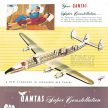The safety rating for each airline is based on a comprehensive analysis of crash and pilot-related serious incident data combined with audits from the world’s aviation governing body ICAO and leading association, IATA, along with the latest COVID-19 compliance data. Each airline has the potential to earn seven stars.
Our rating system is outcome focused. For more information see the disclaimer.
The seven-star safety assessment criteria for all airlines are as follows:
Has the airline experienced a fatal crash in the last 5 years?
Three stars are deleted from the rating if the airline has had any fatalities to passengers or crew in the prior 5 years. It is Airline Rating’s view that it takes up to 5 years for an airline’s safety culture to change after an accident. It can also take up to 5 years for the airline to replace older aircraft types, and upgrade avionics or systems that may have contributed to the accident.
A fatality is deemed as the death of crew and /or passengers whilst on board the aircraft due to an accident. If deaths occurred through acts of terrorism, high jackings OR pilot suicide they have not been included. Nor if the death is not attributable to the airline (faulty manufactured part).
If an airline suffered a fatal accident through no fault of its own such as a runway incursion on the active runway (an incident where an unauthorized aircraft, vehicle or person is on a runway) this has also not been included.
Has the airline suffered numerous serious pilot-related incidents?
If no, two stars are awarded and if yes one or no stars are awarded. AirlineRatings.com has analysed over 11,000 serious incidents over the past five years and looked at trends such as runway overruns to arrive at our ratings.
Has the airline and its country of origin passed all the major audits?
We look at the IOSA audit, ICAO country audit, and EU and FAA ban. If the airline or its country of origin passes all these audits then one-star is awarded.
If there are any failures the star is removed. The exception is IOSA, and if any airline has not done the audit but has not had a fatal crash in 20 years, a star is awarded. (See details of audits below)
Is the airline complying with international COVID-19 standards?
To be awarded one star, an airline must have at least four out of six criteria in place. They are: COVID-19 information on the website; social distancing onboarding and on the plane for the boarding and de-planning process; deep cleaning of aircraft every night; providing face masks; cabin crew wearing face masks; and change in meal service. This information is derived from the airlines’ websites.
AUDIT details
The IATA* Operational Safety Audit (IOSA) certification audit is an internationally recognized and accepted evaluation system designed to assess the operational management and control systems of an airline. IOSA uses internationally recognized audit principles and is designed to conduct audits in a standardized and consistent manner. Airlines are re-evaluated every two years. Registering for IOSA certification and auditing is not mandatory therefore an airline that does not have IOSA certification may have either failed the IOSA audit or alternatively chosen not to participate.
*IATA (International Air Transport Association)
The EU Blacklist is a list of airlines banned from flying into European airspace due to safety concerns arising from alleged poor aircraft maintenance and/or regulatory oversight. Airlines banned by the EU may have a flawless safety record however the potential risk towards passenger safety is deemed by the EU as too high and a ban is put in place.
The US Federal Aviation Authority (FAA) has a list that bans countries (not airlines) from flying into American Airspace. The ban arises from a deemed inability to adhere to international aviation standards for aircraft operations and maintenance. According to the FAA website, “those that do not meet these international standards cannot initiate new service and are restricted to current levels of any existing service to the United States while corrective actions are underway”. An airline or airlines from a prohibited country may have a flawless safety record however the potential risk to safety is deemed too high by the FAA to allow operations in American airspace.
The International Civil Aviation Organization (ICAO) was created to promote the safe and orderly development of international civil aviation throughout the world. It sets standards and regulations necessary for aviation safety, security, efficiency, and regularity, as well as for aviation environmental protection. The 8 ICAO audit parameters that pertain to safety are; Legislation, Organization, Licensing, Operations, Airworthiness, Accident Investigation, Air Navigation Service and Aerodromes. For more information on a particular country visit: http://www.icao.int/safety/Pages/USOAP-Results.aspx.























